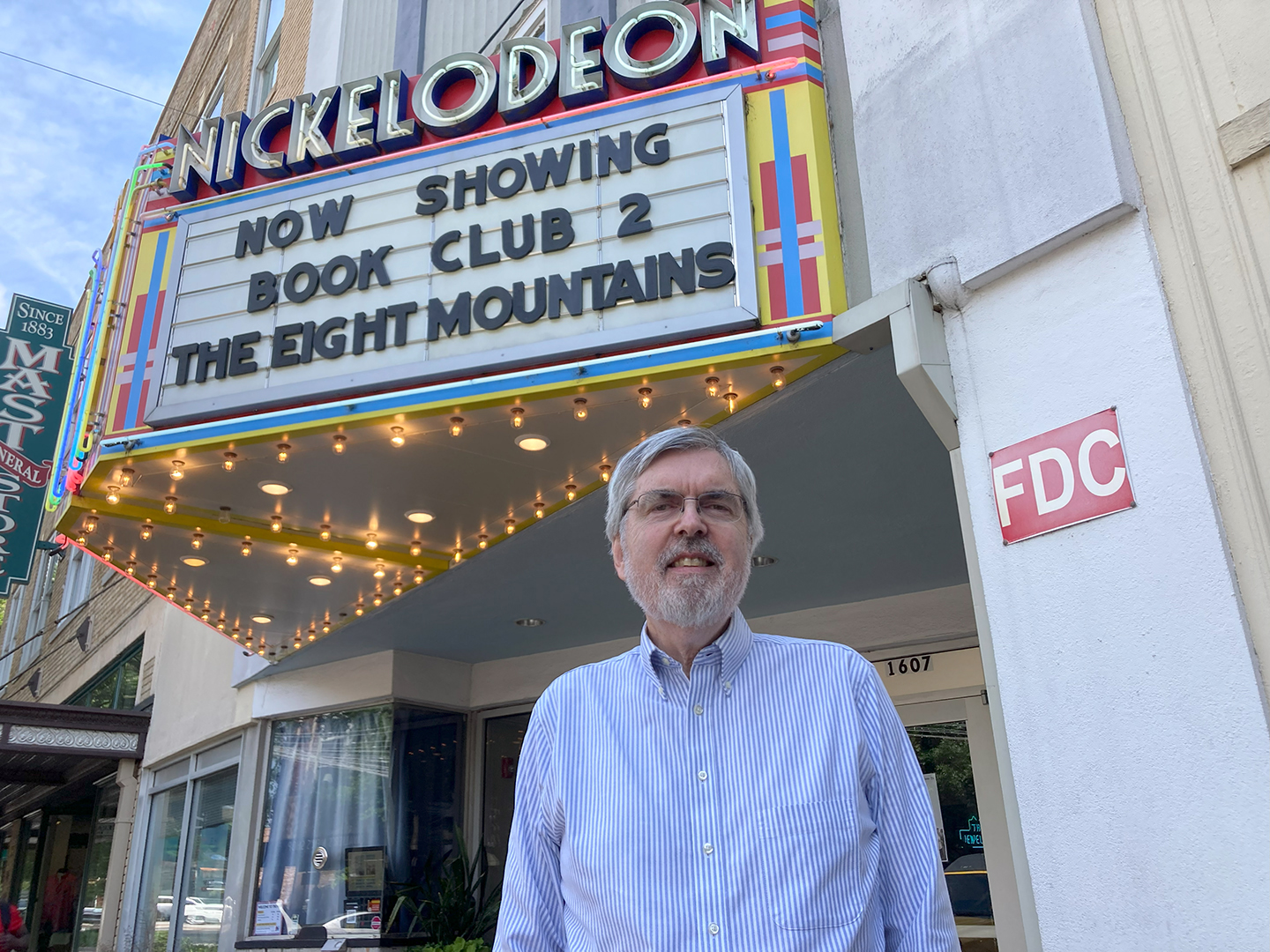
David Whiteman, newly-elected president of The Nick’s board, has been involved with the theater and its mission almost since the very beginning.
The Nickelodeon was started in 1979. Two years later, David came to Columbia to teach political science at the University of South Carolina. He’d heard about the theater, then located just south of the State House, and he went to check it out on his first day in town. He immediately got involved as a volunteer, taking tickets.
He’s been deeply involved almost continuously ever since. He had been interested in the more thought-provoking aspects of cinema since his teens in Green Bay, Wis. He attended a foreign film festival at a nearby college in 1969 that had increased his appreciation of the medium, introducing him to work by Bergman and Fellini that went way beyond the movies he’d gone to see as a kid, the ones with things like “Flubber” and “Flipper” in the titles.
As he got more involved, he realized more and more how important it was for the theater to be “a cultural voice in the community.” He saw the opportunities film offered for greater understanding of important political and societal issues. Increasingly, his research in his academic role plunged into study of the role of documentary film in contemporary social movements.
Over the years since 1981, The Nick has seen some rough patches. In 1988, the theater suddenly closed, “and all the people who loved it weren’t sure exactly what was going on.” Why? Well, remember Blockbuster? There was this thing called the VCR, and for the first time ever, people didn’t have to wait for a film to come to the local bijou to watch it. That meant that to a great extent, if there was an interesting, alternative film that wasn’t coming to the multiplex, you could just get it and watch it at home. Which cut into the Nickelodeon’s reason for being.
So David and others decided to act. “My partner Lee Jane and I got some people together in our living room to see what we needed to do to get it going again.” Soon, the theater was back up and running.
“It took a lot of effort,” he recalls. For one thing, the organization was $30,000 in debt. But they did it.
He stayed “very involved for the next 10-15 years,” and was on the board most of the time. Eventually, he would spearhead the decision to expand, persuading his colleagues to buy the old Fox Theater, where The Nick is found today.
For awhile after that he was less involved, as the $3 million was raised and the move became reality. But he recalls being “very appreciative” of the leadership provided by Larry Hembree and Andy Smith as they guided The Nick into its new era.
Today, his immediate goal is to “complete our recovery from the pandemic,” and then to “establish new, creative ways to accomplish our mission in the community.” Today, with 4K screens in homes and streaming services proliferating, the entire motion picture industry faces a much bigger, redefining threat to its existence than the VCR ever posed.
That shift in viewing habits and film distribution strategies – accelerated by the pandemic – is “the question of the hour” for all theaters, and not just The Nick. And “The ways we went about things even four or five years ago aren’t going to work in the same way.”
For now, David is thankful that The Nick’s finances are improving, thanks to recent fund-raising success and the significant federal funding secured during the pandemic by Anita Floyd, the previous Executive Director. But the board, the staff and new executive director Sumner Bender have been urgently taking a variety of steps to meet those and other challenges, as outlined in this previous blog post, and progress is being made on multiple fronts.
The Nick is building on “a strong legacy of support and community involvement,” earned through the strength and diversity of its film festivals and community programming, and he will work to build on that.
So will we all.